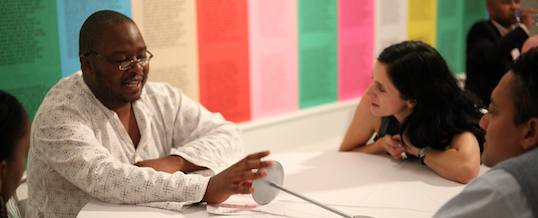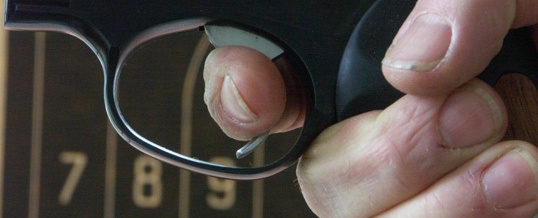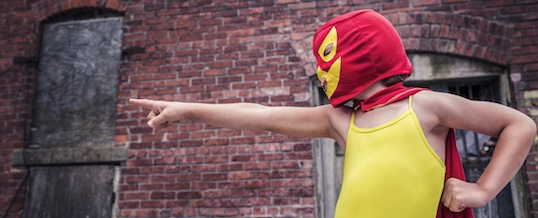
Things People Say: “I want to buy a gun to keep myself safe”
Anyone who’s been around guns for any length of time eventually gets asked for advice: “I want to buy a gun to keep myself safe. What should I get?”
It’s tempting to launch into a discussion about shotguns versus rifles versus handguns, or maybe about 9mm versus .40 S&W, striker-fired versus double action/single action, or even revolver versus autoloader. That’s what “gun people” talk about: the hardware and the technical minutiae surrounding it.
In reality, though, instead of doing a sales job what you should really do is ask a question and then listen.
“What have you already done to keep yourself safe?”
The gun doesn’t make you safer
I’m sure I sound like a broken record (anyone remember those?), but for the new people: the gun, whether for concealed carry or home defense, doesn’t keep you safe. What it does is give you an efficient tool to get you out of a dangerous situation when there is no other option. The gun doesn’t prevent the situation from unfolding, nor does it have broad application. It’s a device that’s useful only in a very narrow range of circumstances and doesn’t keep you out of those circumstances; it gives you a way out.
If someone truly is interested in their personal safety, in the avoidance and prevention of danger, they need to understand that gun doesn’t really do that. It’s a response tool, not a prevention device.
The reason for asking the question is to find out of the person really understands the application of deadly force and when it’s appropriate.
The danger of poor choices
There’s an old saying: “if the only tool you have is a hammer, every problem looks like a nail.” The corollary is that if all you have is a hammer, you’ll wait until something becomes a nail because you don’t have any other way of dealing with it.
I’ve often reported on incidents where someone used deadly force (or threatened to use it) inappropriately. Because so many people rely on the gun as a safety device rather than a defensive tool, when there is a negative interaction with another human being they’re tempted to use the gun as their path to resolution.
We see this all the time: someone lives in a bad neighborhood, and when a thief breaks into their garage to steal something they run in shooting. Or when an inebriated person shows up on their doorstep, screaming to be let in, they shoot through the door. Just the other day I saw a news report where a woman sitting on her porch flashed her handgun to drive off someone dressed in a “scary” clown outfit — who was in a vehicle on the street. I could go on, but all you need to do is watch the news for a week; you’ll see them too.
Remember that shooting and killing another human being, even if done completely righteously, affects the shooter for a lifetime. Even beyond the financial devastation it can cause, there is often an emotional aftermath that may last decades. This is why I tell students not to focus on whether they “can” shoot someone, but rather on whether they need to. If you don’t need to, if there is another way of ending the incident or if the outcome is in doubt, it’s probably best not to pull the trigger. (If you have time to even contemplate the question, that’s a very good sign that you don’t need to!)
Doing everything possible to avoid the need to shoot someone isn’t just a good idea, it’s the best way to stay safe from a variety of threats.
What they should be doing first
Once you ask the question, you’ll probably find that the answer is “nothing” (or very close to it.) This is the person who really needs a broader view of their personal security than just “buy a gun”.
Let’s use home defense as an example. Have they hardened their doors to prevent kick-ins? (It’s easy and relatively cheap to do.) How is the outside lighting? Do they have any fences? Deadbolts?
Have they done something about those hedges in front of their windows? How about security cameras and other early warning devices? Speaking of early warning, do they have a dog (or two) to alert them to people who shouldn’t be there? Have they added proper window locks? Do they have an emergency response plan, and have they practiced it?
These are the things that should be done before the gun is purchased, because these are the things that both reduce the likelihood that they’ll need to shoot someone and prevent low-level incidents from happening in the first place. These are the things that will really keep them safe, and you can make similar list for their personal security when they’re away from home or out in public.
Understand the problem and the solutions
Don’t be gun-centric, and don’t contribute to the development of someone else who is. Instead be safety-centric: understand and share that the gun is an important part of a total security strategy, but it’s not the whole plan — and probably not even the best first step.
– Grant Cunningham
P.S.: Of course, if the person is being actively threatened — they have a restraining order against someone, for instance — then you can feel free to ignore everything I’ve said. However, they still need more than just the gun; they need training on how to use it to defend themselves when they’ve been caught by surprise. That’s another discussion for another day!
Photo by: Africa Centre, Wikimedia Commons
You can LISTEN to this blog post!
- Posted by Grant Cunningham
- On October 10, 2016



